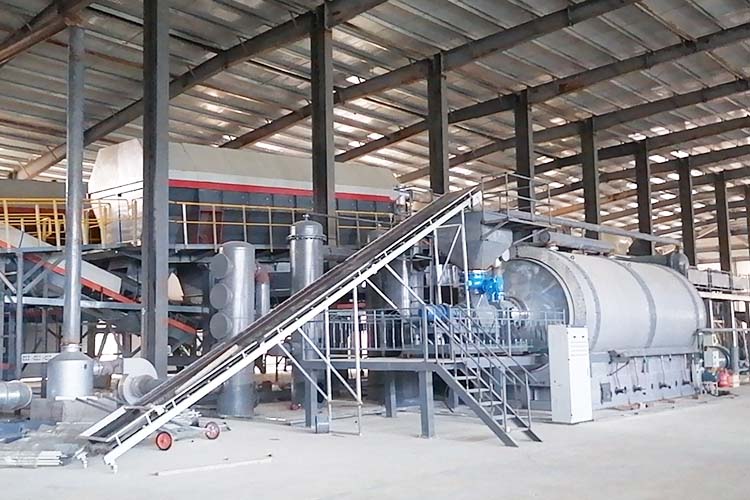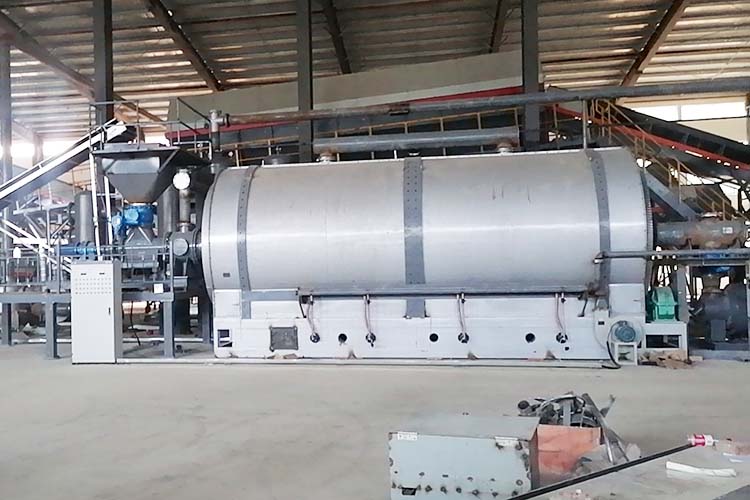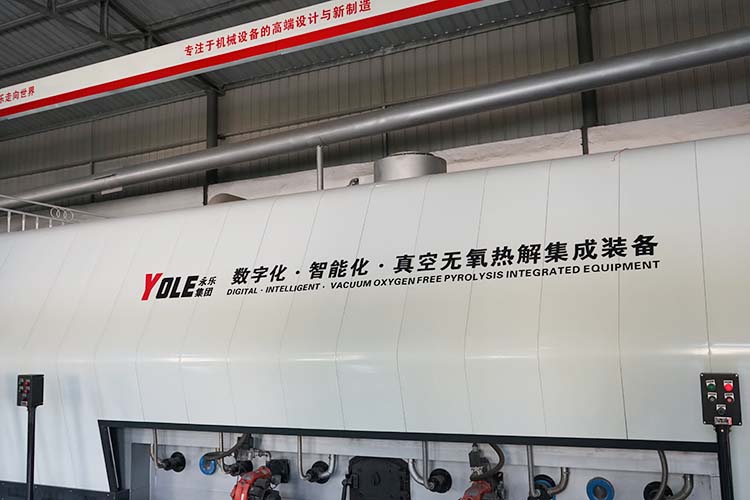In Japan, the petroleum refining, machinery manufacturing, and ocean transportation industries are well-developed. From the refining park in Yokohama Port to the machinery manufacturing base in Kobe, over 200000 tons of oily sludge are generated annually. The local area belongs to a temperate maritime monsoon climate, with heavy rainfall in summer. The oily sludge piled up in the open air is prone to be washed away and spread by rainwater, causing oil to seep into the soil and pollute groundwater, which violates Japan's Soil Pollution Countermeasures Law; Low temperatures in winter may cause the pipelines and reaction devices of traditional processing equipment to freeze, affecting processing efficiency. At the same time, Japan's Waste Management Law and Special Management Guidelines for Petroleum Waste have strict requirements for the treatment of oily sludge. Not only do they require an oil recovery rate of over 80%, but they also set extremely low limits on COD (Chemical Oxygen Demand) emissions during the treatment process. Traditional methods such as landfilling and simple incineration are unable to meet current environmental protection needs due to resource waste and difficulty in meeting pollution standards. Therefore, introducing oily sludge treatment equipment that is suitable for Japanese working conditions has become an inevitable choice.

We have conducted specialized research and development on oily sludge treatment equipment based on the characteristics of oily sludge in Japan, such as large fluctuations in oil concentration in refinery sludge, metal debris mixed in mechanical manufacturing sludge, and high salt content in marine transportation sludge. Considering the limited space of industrial sites in Japan, the equipment adopts modular design, which reduces the footprint by 30% compared to traditional equipment and can be flexibly deployed in the corners of the factory area; For the low temperature in winter, the equipment is equipped with an intelligent temperature control system, which combines electric heating with insulation layer to ensure that the temperature of the reaction chamber is stable at 40-60 ℃, avoiding pipeline freezing; For marine sludge with high salt content, a "saltwater separation module" is installed in the pretreatment stage to reduce the corrosion of salt on subsequent units. The core of the equipment adopts a composite process of "low-temperature pyrolysis chemical demulsification". By accurately controlling the pyrolysis temperature and demulsifier dosage, the oil recovery rate is stable at over 85%, and the recovered oil meets the Japanese JIS K 2203 industrial fuel oil standard. It can be directly returned to the production system of enterprises to achieve resource circulation.

This device has application scenarios covering the entire industry chain in Japan. At large refineries in Yokohama and Chiba, the equipment can seamlessly connect with the production line to achieve daily cleaning of oily sludge. The daily processing capacity of a single equipment can reach 50-80 tons, and the separated oil can be supplied to the boilers in the plant area for combustion. The residue can be used as building materials after harmless treatment; At the mechanical manufacturing bases in Kobe and Nagoya, small-scale modular equipment can process 5-10 tons of oily sludge per day. Through the "magnetic separation+precision filtration" dual module, metal impurities in the sludge are efficiently removed to avoid equipment wear and tear; At the ship repair terminals of Yokohama Port and Osaka Port, mobile equipment can directly dock at the shore to handle oily sludge generated during ship repairs, reducing the risk of leakage during transportation. The equipment also has anti-corrosion design to resist salt erosion in the marine environment.

China Yongle Environmental Protection Engineering Co., Ltd. have over 15 years of experience in the research and development of environmental protection equipment, with more than 20 national patents. Our core technical team covers environmental engineering, chemical processes, and automation control fields, and has provided solutions for oily sludge treatment to more than 20 countries worldwide. For the Japanese market, we can customize services based on policy differences in different regions, such as optimizing VOCs (volatile organic compound) treatment modules for Tokyo customers, strengthening low-temperature start-up functions for Hokkaido customers, and assisting in completing compliance filings with local environmental protection departments. At the same time, we have established an after-sales service center in Osaka, Japan, equipped with professional technical personnel and spare parts warehouses. When equipment malfunctions, our technical team can arrive at the site within 24 hours for maintenance. We also provide Japanese language training for operators to ensure stable operation of the equipment. We look forward to working together with Japanese industrial enterprises and environmental protection agencies to provide high-quality oily sludge treatment equipment and services to help solve local environmental problems and promote green production.
Yongle Environmental Protection is mainly engaged in the research and development, production and sales of complete sets of technical equipment for organic solid waste disposal and comprehensive utilization. Production and manufacturing, domestic waste treatment equipment, tire pyrolysis equipment, medical waste disposal equipment, hazardous waste disposal equipment, and achieve efficient and comprehensive utilization of resources through independently developed low-temperature anaerobic pyrolysis equipment technology solutions.
Tags:Oil containing sludge treatment equipment meets Japan's emission requirements,Oil sludge treatment equipment,YONGLE GROUP
 Latest news
Latest news


























